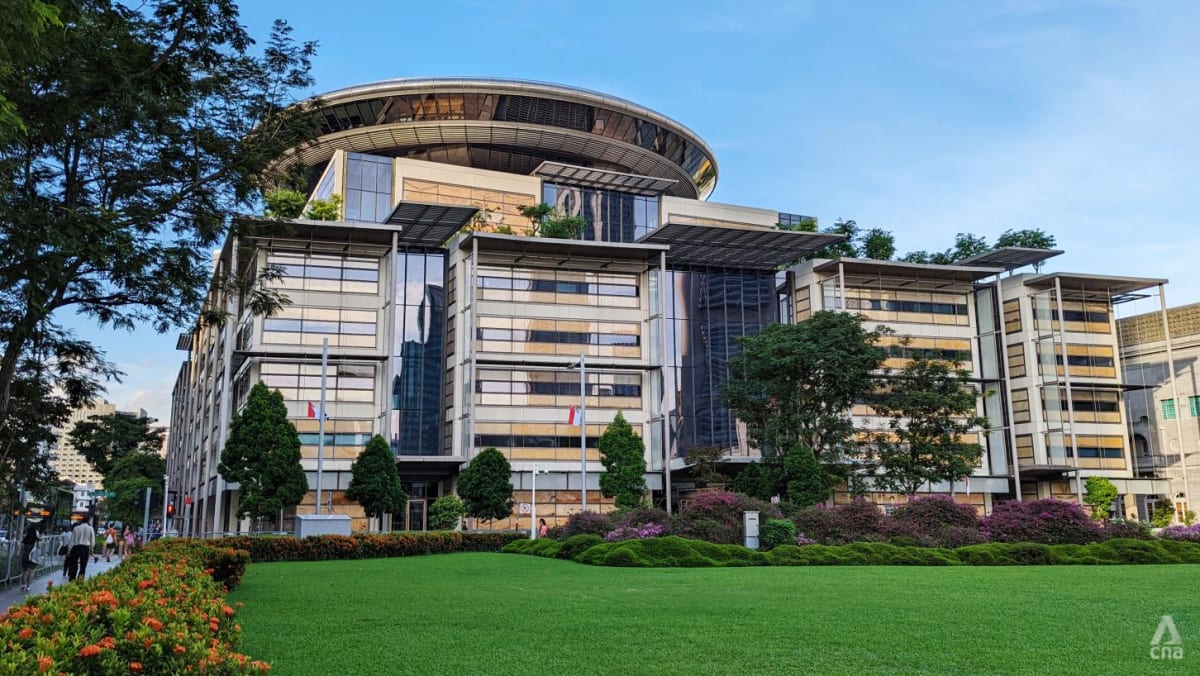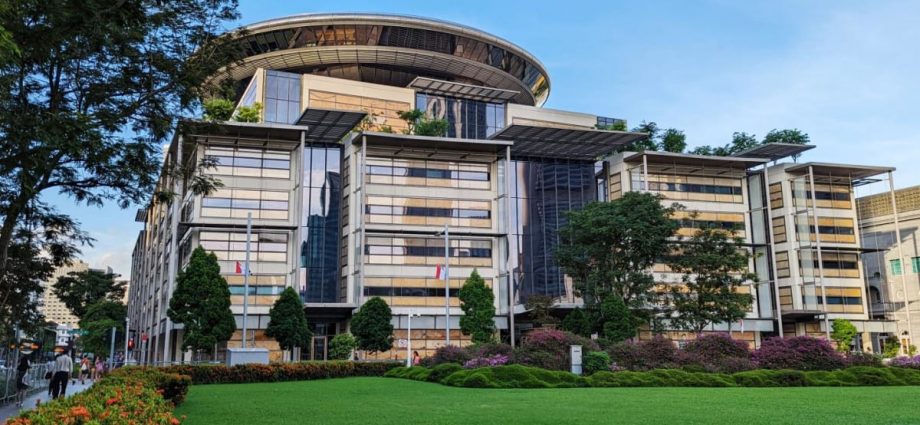
SINGAPORE: Three men successfully sued two of their brothers for their shares in the family business, after discovering that one of the defendants had transferred the plaintiffs’ shares back to himself after initially agreeing to hand over their rightful shares.
The brother who had clawed back the shares said in a letter that he did so because they were “ungrateful”.
In a judgment released by the High Court on Monday (Apr 10), Justice Mavis Chionh ordered the two defendant brothers to jointly transfer each of their three plaintiff brothers 416,666 shares in the family business, so that each of them would have an equal share.
THE CASE
The suit was brought by three of the Ho brothers: Mr Ho Soo Tong, Mr Ho Soo Whatt, and Mr Ho Liew Leng Edwin.
They sued Mr Ho Soo Fong and Mr Ho Soo Kheng, as well as the business Invest Ho Properties.
The five brothers have one more brother – the eldest Ho Ann Swee, who died in 2013. The defendants Soo Fong and Soo Kheng are the fourth and second brothers respectively.
The plaintiffs claimed that all six brothers – with the late eldest brother’s son taking over his share – have equal ownership stakes in the family business Invest Ho.
The defendants claimed instead that Invest Ho was owned only by the two of them and that it was not a family business.
Invest Ho was incorporated in Singapore in April 1986 and has an issued and fully paid-up capital of 2,500,000 ordinary shares of S$1 each.
In 2019, the plaintiffs discovered from a search of the Accounting and Corporate Regulatory Authority (ACRA) that the shareholding of Invest Ho had changed.
They issued a letter of demand to their second and fourth brothers, asking for the shareholding position to be rectified to uphold an agreement between the Ho brothers.
The defendants did not agree, and the lawsuit was filed.
According to the plaintiffs, the Ho brothers began working together from a young age, with the youngest brother Edwin joining the family business last in 1995.
Over the years, the Ho brothers established and were involved in several businesses, such as Ho Tong Seng Engineering Works Co and Ho Pak Kim Enterprise, acquiring various properties.
Invest Ho was set up by two men unrelated to the Hos, who were also surnamed Ho, in conjunction with the two defendant brothers Soo Fong and Soo Kheng.
It was to be used as a joint venture company. Around 2006 to 2007, the two unrelated men ceased being joint venture partners, leaving Soo Fong and Soo Kheng as the sole registered shareholders.
According to the plaintiffs, Soo Fong and Soo Kheng continued to hold all their shares in Invest Ho on trust for the five brothers in equal proportions. This did not include the late eldest brother, who was not on good terms with Soo Fong and Soo Kheng at the time.
The plaintiffs also said they were given constant verbal reassurances between 2007 and 2012 that their respective shares in Invest Ho would be transferred to them.
These communications were not documented because they were family.
THE 2012 AGREEMENT
However, in 2012, the five brothers had a meeting and agreed to record their agreement that the shares in Invest Ho which were held in Soo Fong and Soo Kheng’s names belonged equally to each of them.
At this meeting, it was agreed that since Invest Ho had been built up as a result of contributions from all the Ho brothers, the shares in Invest Ho belonged equally to each and every one of the brothers, including the eldest brother.
As the latter was in ill health, they agreed for his shares to be given to his son, Hoo Peng Zuo.
A document prepared by Soo Fong indicated that all 2,500,000 Invest Ho shares were to be equally divided among the six of them, meaning that each of the six would own 416,666.67 shares.
The plaintiffs said they had contributed to Invest Ho in various ways, including loaning personal funds of about S$4.7 million, using their own company to give Invest Ho an interest-free sum of about S$2.2 million, and mortgaging their property as collateral to obtain an overdraft loan facility of almost S$2 million for Invest Ho.
After the 2012 agreement, Soo Fong and Soo Kheng did not transfer the shares to their three brothers or Peng Zuo.
“In light of their familial relationship, the plaintiffs did not insist,” noted the judge. “They also felt reassured by the existence of the 2012 agreement.”
In late 2016, the plaintiffs had a meeting with Soo Fong, where Soo Fong agreed to transfer 310,000 shares from his 1,550,000 shares to each of them and Peng Zuo.
Soo Fong claimed that Soo Kheng was unwilling to transfer any shares to them, and said he had a way to persuade Soo Kheng, so the plaintiffs left it to Soo Fong to speak to Soo Kheng.
THE 2017 TRANSFER
On Mar 1, 2017, Soo Fong transferred 310,000 shares each to the plaintiffs and Peng Zuo. Soo Fong and Soo Kheng, who were then the directors and registered shareholders of Invest Ho, passed a resolution stating that the total transfer of 1,240,000 shares was approved.
At the time, the total net asset value of Invest Ho was S$32,487, with the net asset value per share at a total of 2,500,000 shares being S$0.013.
At no time did Soo Kheng transfer any of his shares to his brothers or Peng Zuo.
In July 2019, one of the plaintiffs obtained a copy of Invest Ho’s ACRA business profile and discovered that the three brothers’ 930,000 shares had been transferred back to Soo Fong without their knowledge, consent or authorisation.
This meant Soo Fong was the largest shareholder in Invest Ho with 1,240,000 shares. Soo Kheng held 950,000 shares and Peng Zuo continued to hold 310,000 shares.
Soo Fong admitted upon questioning that he had changed the ACRA records but failed to give his brothers any reasonable or cogent explanation as to why he did this.
Investigations showed that Soo Fong had personally lodged these transfers to himself in October 2018 and not via the company secretary.
The plaintiff brothers engaged lawyers to get the wrongfully transferred shares to be returned to them, as well as for Soo Kheng to transfer to them the shares he was still holding on trust for them.
In their case, the defendants said the Ho brothers were never involved in any family business or enterprise, and denied the existence of the 2012 agreement.
They claimed that the 2017 transfer of shares by Soo Fong came about because Soo Fong decided to sell some of his shares to the plaintiffs and Peng Zuo at S$2.50 per share.
THE JUDGE’S FINDINGS
Justice Chionh found in favour of the plaintiff brothers. She found Peng Zuo to be “an honest witness without any obvious axe to grind”.
Peng Zuo gave evidence supporting the plaintiffs’ version of the 2012 agreement. He recalled attending a meeting at Invest Ho’s office, which his uncles also attended.
Justice Chionh also pointed to Soo Fong’s reply to the letter of demand from the plaintiffs’ solicitors. Soo Fong stated that the shares were given to the plaintiffs in “good will” subject to the plaintiffs being “grateful” and “hopefully they and their children can jointly (expand) the company bigger”.
In the letter, Soo Fong added that he had taken back all his shares as the plaintiffs “are ungrateful”.
He explained that he had not taken back his nephew Peng Zuo’s shares as he was young and Soo Fong believed Peng Zuo was being instigated by his uncles to ignore him.
Although no mention of payment for the shares was made at this stage, Soo Fong claimed at trial that he had taken back the shares because the plaintiffs failed to pay him the sale price of S$775,000 each.
Justice Chionh ordered the defendants to jointly transfer to each of the three plaintiffs 416,666 Invest Ho shares within four weeks.
The defendants are to bear the costs and expenses, including any stamp duty, of the transfer.
Pending the completion of the transfer, the defendants are not to encumber or dispose of the Invest Ho shares registered in their names.
If they fail to do so within the stipulated four weeks, the registrar or any assistant registrar of the Supreme Court will be empowered to execute all necessary documents on the defendants’ behalf.
The trial was heard over nine days, with the defendants’ lawyers discharging themselves on the first day and the defendants acting for themselves thereafter. The plaintiffs were represented by Mr Edwin Sim from Lexton Law and assisted by Mr Jonathan Muk and Ms Clara Lim from LVM Law Chambers.

